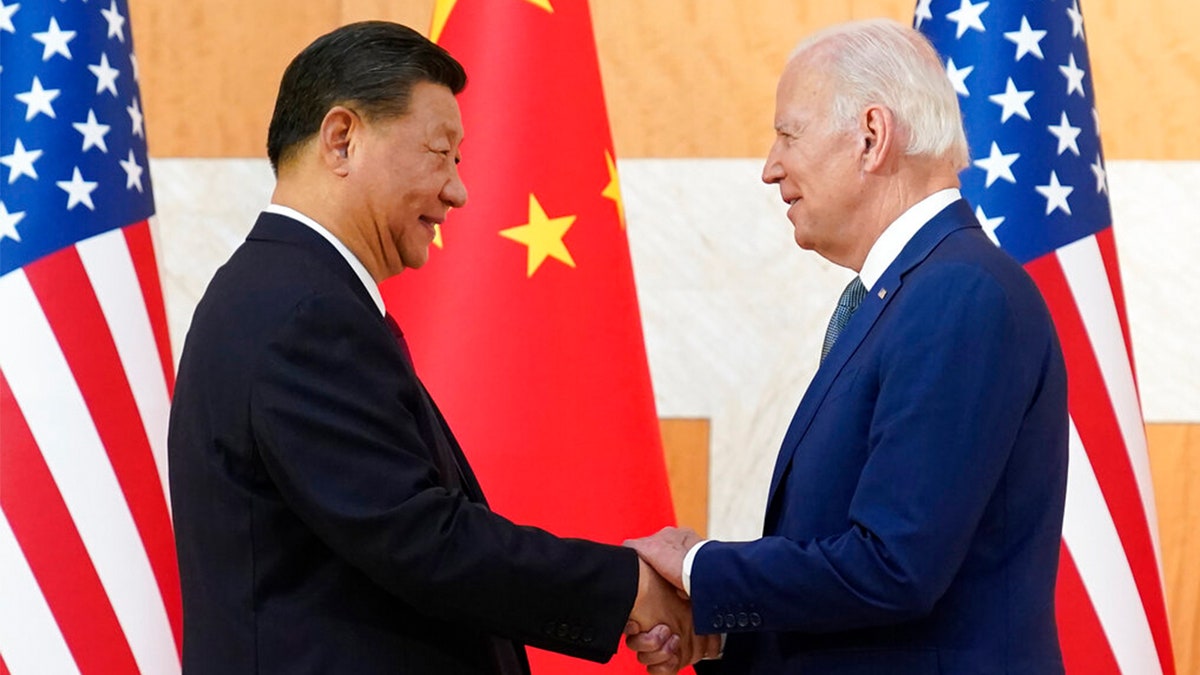Asia Summit 2024: The Shadow Of US Tariffs And Strengthening China Relations

Table of Contents
The Enduring Impact of US Tariffs on Asian Economies
The ongoing effects of US tariffs imposed during the previous administration continue to ripple through Asian economies. Many businesses are still adjusting to the new trade landscape, forcing a reassessment of global supply chains and trade strategies. The Asia Summit 2024 provides a critical platform to address these lingering challenges.
Disrupted Supply Chains and Trade Diversification
The imposition of US tariffs has significantly disrupted established supply chains, forcing Asian exporters to adapt and diversify.
- Increased production costs: Tariffs have increased production costs for many Asian exporters, reducing their competitiveness in the US market and globally.
- Shifting of manufacturing bases: To avoid tariffs, many businesses have shifted their manufacturing bases to other countries, impacting employment and investment in tariff-affected Asian nations.
- Growth of regional trade agreements: The need to mitigate the impact of US tariffs has spurred the growth of regional trade agreements like the Regional Comprehensive Economic Partnership (RCEP), aiming to strengthen intra-Asian trade.
- Increased reliance on intra-Asian trade: Asian countries are increasingly reliant on trade within the region to compensate for reduced access to the US market. This shift is a key topic of discussion at the Asia Summit 2024.
Investment Uncertainty and Economic Slowdown
The unpredictability of US trade policy has created significant uncertainty, impacting foreign direct investment (FDI) in the region. This uncertainty is a major concern heading into the Asia Summit 2024.
- Cautious investment decisions: Multinational corporations are making more cautious investment decisions, delaying or scaling back projects due to trade policy uncertainty.
- Reduced economic growth: Some tariff-affected sectors in Asia have experienced reduced economic growth as a result of decreased demand from the US market.
- Search for alternative markets: Businesses are actively searching for alternative markets and investment destinations to reduce their reliance on the US. The Asia Summit 2024 offers a chance to explore these alternatives.
Strengthening China Relations: Opportunities and Challenges
China's expanding economic influence, particularly through initiatives like the Belt and Road Initiative (BRI), continues to reshape regional dynamics. The Asia Summit 2024 will undoubtedly feature extensive discussions on navigating this evolving relationship.
China's Expanding Economic Influence
The BRI and other Chinese economic initiatives offer significant opportunities for increased infrastructure development and economic growth across Asia.
- Increased infrastructure investment: China's investment in infrastructure projects across Asia is boosting connectivity and trade.
- Growing trade relationships: Trade relationships between China and other Asian nations are expanding, creating new opportunities and challenges.
- Potential for increased Chinese FDI: China's growing economic power is attracting increased foreign direct investment (FDI) in various sectors throughout Asia.
Geopolitical Tensions and Regional Security Concerns
China's rise has also led to increased geopolitical tensions and security concerns, particularly regarding the South China Sea. Addressing these concerns is crucial for regional stability.
- The South China Sea dispute: The ongoing disputes over territorial claims in the South China Sea remain a significant source of tension.
- Concerns about Chinese military expansion: Concerns about China's military expansion and its implications for regional security are prevalent.
- The need for multilateral dialogue: The Asia Summit 2024 highlights the urgent need for multilateral dialogue and conflict resolution mechanisms to address these concerns.
Balancing US and China Relations
Asian nations face the complex challenge of balancing relationships with both the US and China, a key theme of the Asia Summit 2024.
- Strategies for managing great power competition: Developing effective strategies to manage great power competition between the US and China is vital for maintaining regional stability.
- The importance of diversification: Diversifying economic and security partnerships is crucial to reduce dependence on either superpower.
- The role of ASEAN: Regional organizations like ASEAN play a key role in fostering dialogue and cooperation to maintain stability amidst great power competition.
Conclusion
The Asia Summit 2024 will be a critical forum for addressing the enduring legacy of US tariffs and the evolving relationship between the US and China. Navigating these complexities will require skillful diplomacy and strategic planning by Asian nations. Understanding the implications of these intertwined issues is paramount for businesses and governments alike. To stay informed about the latest developments and insights from the Asia Summit 2024, continue to follow our coverage and analysis of this crucial event. Stay updated on the evolving dynamics of the Asia Summit 2024 and the future of Asia-Pacific relations. Don't miss the crucial discussions and decisions shaping the future of the Asia Summit 2024 and the broader Asia-Pacific region.

Featured Posts
-
 Jason Derulo And Nora Fatehis Snake A Uk British Asian Chart Hit
May 27, 2025
Jason Derulo And Nora Fatehis Snake A Uk British Asian Chart Hit
May 27, 2025 -
 Kai Cenat Explains His Met Gala Absence
May 27, 2025
Kai Cenat Explains His Met Gala Absence
May 27, 2025 -
 Almanacco Di Oggi 10 Marzo Cosa Accadde Compleanni E Proverbio
May 27, 2025
Almanacco Di Oggi 10 Marzo Cosa Accadde Compleanni E Proverbio
May 27, 2025 -
 2025 Amas Janet Jackson Honored With Icon Award And Live Performance
May 27, 2025
2025 Amas Janet Jackson Honored With Icon Award And Live Performance
May 27, 2025 -
 Dylan Efrons Fourth Wing Condition An Exclusive Interview
May 27, 2025
Dylan Efrons Fourth Wing Condition An Exclusive Interview
May 27, 2025
